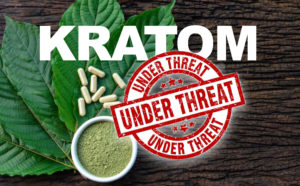People sometimes wonder if they can pass a drug test when using kratom. Drug screenings are often done as part of the hiring process. There are also situations where random, unannounced, surprise drug tests are administered during a person’s employment at a company.
Even when such substances as cannabis and kratom are legal in an area, an employer may still be wary of anything that they think might impact a worker’s job performance. Often these concerns are justified, but sometimes it’s just lazy acceptance of lame stream media misinformation or old fashioned prejudice against certain substances.
Notice that there don’t seem to be any alcoholism tests for employment, but alcohol abuse can definitely have an effect on a person’s job performance, attendance, and overall health and personality.
Kratom is not detectable on most standard drug tests, such as the common 5-panel drug test, but some kratom alkaloids can show up on certain drug tests that use samples of your urine or blood.

There is also a drug test that specifically tests for Kratom. It is known as a 10-panel drug test. When using a 10-panel drug test the substance can be detected for up to 7 days after use, but many variables can influence how long the drug can be detected in your system.
So, you’re wanting to apply for a job, but you know they do drug testing. You start to be concerned about a few things. Will this testing discover kratom in my body? Or is there some special test that has to be done to find kratom in a person? Will they ask me if I’m using any drugs not prescribed by a physician?
What if I stopped taking kratom a little while ago? Are kratom alkaloids still lingering within me? How long will detectable traces of kratom remain in my system?
Confirm Biosciences states the following…
QUOTE
While kratom contains alkaloids that bind to opioid receptors in the brain, they are not structurally related to opioid drugs and are therefore not detectable through opiate drug tests.
That is not to say that these kratom alkaloids are not detectable in body fluids, because they are – it’s just that they are not normally tested for because kratom is not illegal.
In the workplace, standard 5 panel drug tests only test for cannabinoids, cocaine, amphetamines, opiates, and PCP (SAMHASA 5).
If employers have reason to believe that an employee may be misusing kratom and that its side effects may be affecting that employee’s productivity and the overall safety in their workplace, notwithstanding kratom’s legal status, said employers would be within their rights as may be provided for in their drug free workplace policy, to request for that employee to be tested.
This should work in much the same way as testing for prescription drugs which are also legal.
In drug screening, the cut-off level is the minimum amount of drug residue that must be found in the sample in order for the test to be positive. It is important to remember that a negative sample does not necessarily mean that it is drug-free, only that it contains a drug at a concentration that is below the established cut-off.
Urine drug test – The average (high-dose) user takes some 5.3 days to completely flush out kratom alkaloids from the system, so trace quantities of metabolites may be detectable in urine for over a week.

END QUOTE
Mitragynine is the main chemical (called an alkaloid) in kratom that produces effects. Mitragynine can be detected in typical drug test urine screens.
So, how long does kratom stay in your body after your last dose of it? It depends on many factors, but general statements can be made.
Half-life is the key term here.
The half-life of the drug is the amount of time that it takes a person’s metabolism, particularly the liver, to break down the drug, and reduce it by half (50%) its concentration in the person’s system.
A drug is proportionally eliminated from your system within the time span of each additional half-life.

Thus, if a 100 mg dose of an IV drug with a half-life of 15 minutes was given to a patient, it would take approximately 15 minutes for 50 mg of the drug to remain in the system; it would take 30 minutes for 25 mg to remain; 45 minutes for 12.5 mg to remain; 120 minutes for 0.39 mg to remain; and so on.
It is generally considered that in order to completely eliminate a drug from the body under most conditions, it takes about 5–6 half-lives; but this is a general figure. The actual elimination of any drug in a person is dependent on a variety of personal and strain-dependent factors.
Thus, based on this information, for most individuals, detectable amounts of kratom will be gone from your blood plasma in about 24 hours, but it would take about 5–6 days to totally eliminate the drug from your system.
To get even more technical, there is Terminal Half-life and Elimination Half-life.
Terminal half-life is the time it takes for the plasma concentration of a substance to be divided by 2 after reaching what is called pseudo-equilibrium. Terminal half-life isn’t an indicator of the rate of elimination, but rather how much kratom is absorbed and how quickly the absorption takes place.
So avoiding a positive test isn’t as simple as making a calculation based on the elimination half-life.
Here are some other factors that determine the alkaloid content of the kratom you use, and exactly how long kratom will persist in your system at drug test detectable levels:
The specific strain of kratom (Aceh, Bentuangie, Malaysian, Vietnamese, Indo, Sumatra, etc.)
Exactly how much kratom you took in your last dose, before you stopped taking kratom (to pass the drug test)…at least you don’t have to worry about your usage several days in the past!
Your body weight, fat percentage, and speed of metabolism (how fast your system processes substances) – heavier people retain kratom longer than skinny people.
Age of the kratom plant when it was harvested.
Your own age (older folks process substances slower than younger people).
How much activity you engaged in while taking your last dose of kratom (moving around, exercising, walking, etc. will move the kratom through your system faster).
How healthy and active your liver is.
Other drugs you are using (their combinations can have an impact on how you process them).
Growing environment (soil and surrounding plants, insect populations, etc.).
Climate conditions in which the plant grew.
Time of harvest.
Drying and fermentation processes.
Purity of your kratom (ALWAYS insist on fresh, 3rd party lab tested products, and know that disreputable vendors may add phenibut, opioids, niacin, or other contaminating substances in an attempt to boost its effects).
Please remember, even if a substance like kratom or cannabis or magic mushrooms is legal where you live, that doesn’t mean an employer is going to be okay with their workers using them.
Hopefully, as more research is conducted, we will learn more about our beloved kratom and its wonderful properties. And employers will stop being so clueless about something that brings so many benefits to those who take it!















